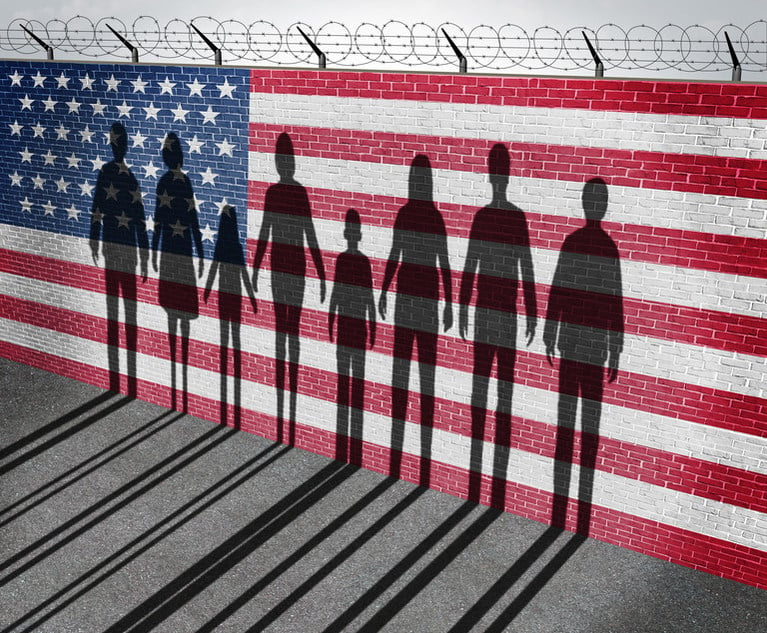Big Pharma Has a Unique Vulnerability to FCPA Violations
Big Pharma's FCPA troubles may continue for years to come.
September 30, 2010 at 08:00 PM
6 minute read
The Justice Department (DOJ) is nearly a year into a major sweep of the pharmaceutical industry for Foreign Corrupt Practices Act (FCPA) violations. Although the investigation has been low-profile so far–no charges have yet been filed–the effort has the potential to change the way drug and medical device companies do business.
“This is a huge deal because of the number of clinical trials run abroad and the percentage of drugs that are approved in the U.S. that derive from those trials,” says Glen Donath, a partner at Katten Muchin Rosenman.
Merck disclosed in an August SEC filing that it was under investigation. Eli Lilly previously made a similar disclosure. Many other major companies, including AstraZeneca, Baxter, Bristol-Myers Squibb, GlaxoSmithKline and Pfizer, have at least received letters of inquiry from the Justice Department about their practices abroad. This is probably just the tip of the iceberg, FCPA experts warn.
“This is likely to be a lengthy, industrywide investigation,” Donath says. “It has the potential to dramatically reconfigure the way pharmaceutical and device companies run clinical trials and market drugs abroad.”
Uniquely Vulnerable
The enforcement push is not exactly a surprise. Criminal Division Chief Lanny Breuer announced last November that the DOJ intended to step up FCPA scrutiny of drug and device companies. And the murky relationship between doctors and companies has come under increasing suspicion in recent years, with inquiries by Congress and by medical schools that have reformed the way they compensate medical staff to mitigate outside influence.
Domestically, the flow of resources to doctors from drug companies runs from freebie pens to multimillion-dollar research grants. While it's clearly bribery if a company explicitly pays a doctor to prescribe its drug, circumstances are rarely that clear cut.
“A bag of cash is one thing–everybody knows you're not supposed to hand out Super Bowl tickets. But beyond that you quickly encounter gray areas,” says Mike Barta, a partner at Baker Botts.
Practices are just as varied abroad, with drug and device companies engaging doctors on everything from marketing efforts to clinical trials. But under the FCPA, the gray areas shrink considerably.
“When you're talking about China, where a doctor is a public official, it becomes an easy FCPA enforcement case for the government,” Barta says. “In some sense it's low hanging fruit.”
Big Pharma's broad and varied relationships with doctors make the industry uniquely vulnerable to FCPA liability–compliance is not merely a matter of reining in a handful of sales reps and executives, but vetting fleets of employees who work hand-in-hand with doctors. That's causing drug and device companies a lot of anxiety these days, given the astronomical fines FCPA cases often engender (see “High Stakes”).
“Potentially every [pharmaceutical]business partner abroad could be a public official,” Donath says. “The FCPA defines public officials rather broadly, and it puts the onus squarely on the payor–that is the pharmaceutical company–to determine whether their business partner is a public official. It's not always an easy determination to make.”
Cross-Border Convergence
Making matters worse for drug and device companies, FCPA investigations in general have become more prevalent and sophisticated in recent years, with increasing cross-border collaboration among prosecutors.
“This is a confluence of two larger trends,” Donath says. “You have the overall reassessment of the pharma/device-physician relationships. You also have very ramped-up FCPA enforcement over the past 10 years.”
As prosecutors have dedicated increasing time and resources to foreign corruption in recent years, they have built a strong network both domestically and abroad. Now they are joining forces with health care fraud prosecutors to put the screws to the pharmaceutical industry.
Patient safety is clearly one motivation. Regulators fear that the effect of corruption on clinical trials abroad, where research controls may not be as strict, could lead to unsafe drugs entering the market. Fraud, waste and abuse are also growing concerns, with the federal government taking on an even larger role in the wake of health care reform.
“Health care is one-sixth of the U.S. economy,” Barta says. “The Justice Department's interest in corruption or bribery or FCPA violations remains extremely high, so it's only natural that they apply that to one-sixth of
the economy.”
More to Come
Although FCPA investigators have demonstrated their willingness and ability to root out violations in the farthest corners of Africa, central Asia and the Middle East, the current pharma initiative seems to focus on the world's biggest growth economies.
“It's Brazil, it's India, it's China, it's Russia–countries where you now see significant economic rebound,” Barta says. “They're not as far along with western views on corporate governance.”
Many of the large pharma players are actively cooperating with investigators to reduce liability. Companies that have not yet come under investigation should proactively investigate their exposure and self-report any violations that turn up, experts say.
“Companies get a significant break by taking their problems in rather than waiting for the government to come to them,” Donath says. “That's always a complicated decision, but a company should not sit back and wait for the government to contact them before determining whether they have a problem.”
As the investigation matures, laggards will likely face harsher tactics, as prosecutors grow more aggressive and familiar with the territory. As in any area, success breeds success, and once the first wave of charges and settlements is announced, pharma companies can only expect the pressure to intensify.
Prosecutors often have a copycat mentality. Once one case sticks, several more are sure to follow. Options backdating, for example, was a nonissue as late as 2005–at least in a criminal context. By the end of 2006, however, more than 130 companies were swept into the fray, and more than 50 executives and directors lost their jobs.
The FCPA is unique in that all cases must come through the DOJ's fraud section, but white-collar sources report that the fraud section has already begun to farm some FCPA work out to local
U.S. attorneys. All signs point to sustained and increasing prosecution in the area for a long time to come.
“It'll be years,” Barta says. “Years.”
This content has been archived. It is available through our partners, LexisNexis® and Bloomberg Law.
To view this content, please continue to their sites.
Not a Lexis Subscriber?
Subscribe Now
Not a Bloomberg Law Subscriber?
Subscribe Now
NOT FOR REPRINT
© 2024 ALM Global, LLC, All Rights Reserved. Request academic re-use from www.copyright.com. All other uses, submit a request to [email protected]. For more information visit Asset & Logo Licensing.
You Might Like
View All
'The Show Must Go On': Solo-GC-of-Year Kevin Colby Pulls Off Perpetual Juggling Act

Immigration Under the Trump Administration: Five Things to Expect in the First 90 Days
8 minute read
Dog Gone It, Target: Provider of Retailer's Mascot Dog Sues Over Contract Cancellation
4 minute read
Lululemon Faces Legal Fire Over Its DEI Program After Bias Complaints Surface
3 minute readTrending Stories
- 1Litigators of the Week: A Trade Secret Win at the ITC for Viking Over Promising Potential Liver Drug
- 2Litigator of the Week Runners-Up and Shout-Outs
- 3'The Show Must Go On': Solo-GC-of-Year Kevin Colby Pulls Off Perpetual Juggling Act
- 4Legal Speak at General Counsel Conference East 2024: Match Group's Katie Dugan & Herrick's Carol Goodman
- 5Legal Speak at General Counsel Conference East 2024: Eric Wall, Executive VP, Syllo
Who Got The Work
Michael G. Bongiorno, Andrew Scott Dulberg and Elizabeth E. Driscoll from Wilmer Cutler Pickering Hale and Dorr have stepped in to represent Symbotic Inc., an A.I.-enabled technology platform that focuses on increasing supply chain efficiency, and other defendants in a pending shareholder derivative lawsuit. The case, filed Oct. 2 in Massachusetts District Court by the Brown Law Firm on behalf of Stephen Austen, accuses certain officers and directors of misleading investors in regard to Symbotic's potential for margin growth by failing to disclose that the company was not equipped to timely deploy its systems or manage expenses through project delays. The case, assigned to U.S. District Judge Nathaniel M. Gorton, is 1:24-cv-12522, Austen v. Cohen et al.
Who Got The Work
Edmund Polubinski and Marie Killmond of Davis Polk & Wardwell have entered appearances for data platform software development company MongoDB and other defendants in a pending shareholder derivative lawsuit. The action, filed Oct. 7 in New York Southern District Court by the Brown Law Firm, accuses the company's directors and/or officers of falsely expressing confidence in the company’s restructuring of its sales incentive plan and downplaying the severity of decreases in its upfront commitments. The case is 1:24-cv-07594, Roy v. Ittycheria et al.
Who Got The Work
Amy O. Bruchs and Kurt F. Ellison of Michael Best & Friedrich have entered appearances for Epic Systems Corp. in a pending employment discrimination lawsuit. The suit was filed Sept. 7 in Wisconsin Western District Court by Levine Eisberner LLC and Siri & Glimstad on behalf of a project manager who claims that he was wrongfully terminated after applying for a religious exemption to the defendant's COVID-19 vaccine mandate. The case, assigned to U.S. Magistrate Judge Anita Marie Boor, is 3:24-cv-00630, Secker, Nathan v. Epic Systems Corporation.
Who Got The Work
David X. Sullivan, Thomas J. Finn and Gregory A. Hall from McCarter & English have entered appearances for Sunrun Installation Services in a pending civil rights lawsuit. The complaint was filed Sept. 4 in Connecticut District Court by attorney Robert M. Berke on behalf of former employee George Edward Steins, who was arrested and charged with employing an unregistered home improvement salesperson. The complaint alleges that had Sunrun informed the Connecticut Department of Consumer Protection that the plaintiff's employment had ended in 2017 and that he no longer held Sunrun's home improvement contractor license, he would not have been hit with charges, which were dismissed in May 2024. The case, assigned to U.S. District Judge Jeffrey A. Meyer, is 3:24-cv-01423, Steins v. Sunrun, Inc. et al.
Who Got The Work
Greenberg Traurig shareholder Joshua L. Raskin has entered an appearance for boohoo.com UK Ltd. in a pending patent infringement lawsuit. The suit, filed Sept. 3 in Texas Eastern District Court by Rozier Hardt McDonough on behalf of Alto Dynamics, asserts five patents related to an online shopping platform. The case, assigned to U.S. District Judge Rodney Gilstrap, is 2:24-cv-00719, Alto Dynamics, LLC v. boohoo.com UK Limited.
Featured Firms
Law Offices of Gary Martin Hays & Associates, P.C.
(470) 294-1674
Law Offices of Mark E. Salomone
(857) 444-6468
Smith & Hassler
(713) 739-1250






